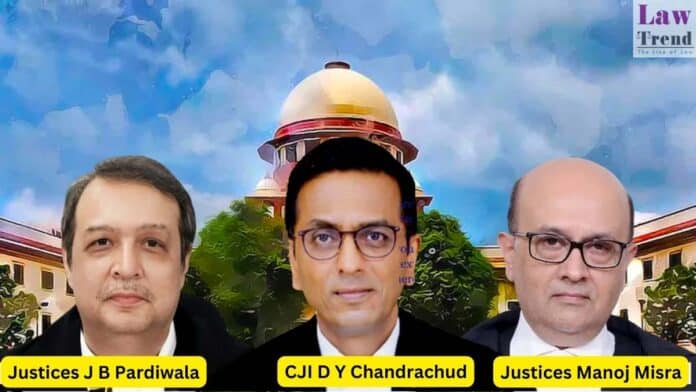On Friday, the Supreme Court of India refused to entertain a plea that sought directives for both the Central and state governments to adopt measures aimed at eliminating superstition, sorcery, and related practices. The plea, presented by advocate Ashwini Kumar Upadhyay, argued for the necessity of stringent laws against superstition and sorcery to counteract the unscientific acts that negatively affect the community and prevent exploitation by fraudulent seers.
The bench, comprising Chief Justice D Y Chandrachud and Justices J B Pardiwala and Manoj Misra, emphasized that the solution to eradicating superstition lies in education rather than judicial mandates. The justices remarked, “How can we issue a writ that steps be taken to develop scientific temper and eradicate superstition. The founding fathers of the Constitution included all this in directive principles of state policy.” This statement highlights the court’s view that such social changes are better addressed through educational advancements and legislative actions rather than judicial interventions.
The bench also noted that it is the role of Parliament to consider and implement laws regarding matters of societal beliefs and practices. Following the court’s inclination not to proceed with the case, the petitioner withdrew his plea.




